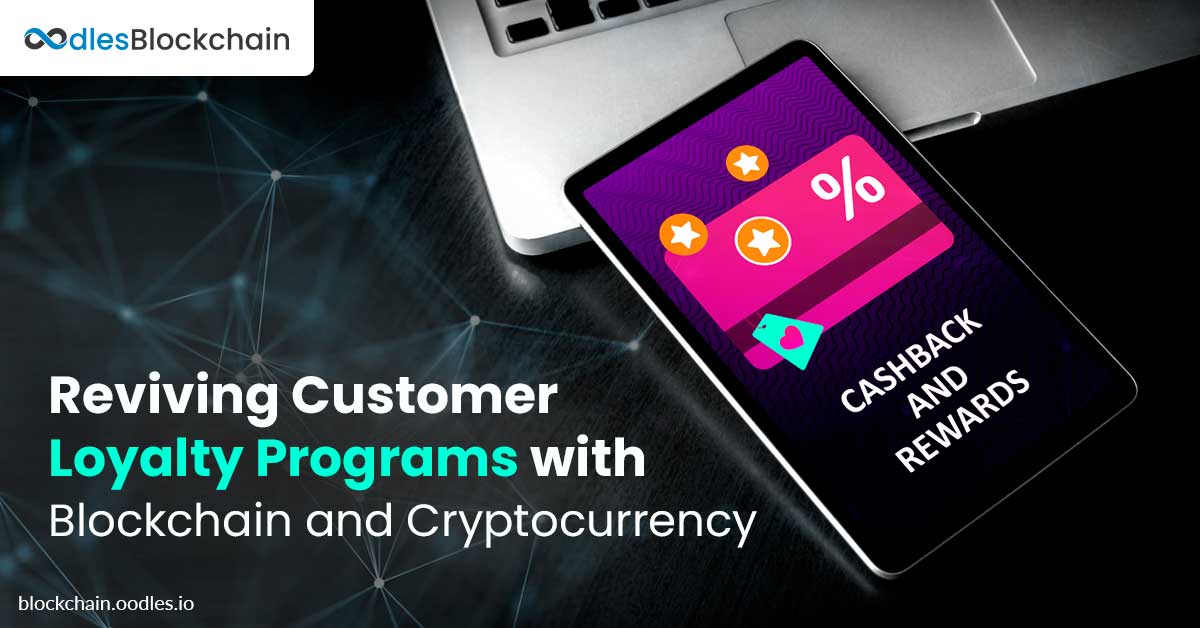Buzz of Connections
Exploring the latest trends in dating, relationships, and social interactions.
Why Blockchain Loyalty Programs Are the Future of Customer Engagement
Unlock the potential of customer loyalty! Discover why blockchain loyalty programs are revolutionizing engagement and shaping the future.
How Blockchain Technology is Revolutionizing Loyalty Programs
Blockchain technology is transforming loyalty programs by increasing transparency, security, and efficiency. Traditional loyalty systems often struggle with issues such as data breaches, customer disengagement, and limited redemption options. By utilizing blockchain, companies can create a decentralized ledger that securely tracks customer transactions and points accumulation. This transparency allows customers to see exactly how many points they have earned, encouraging greater participation and engagement in loyalty initiatives. Furthermore, the immutable nature of blockchain enhances security, reducing the risk of fraud and ensuring that loyalty points are protected.
Moreover, blockchain-based loyalty programs can eliminate the barriers associated with traditional schemes, such as restricted point usage and expiration dates. Smart contracts can automate the rewards process, ensuring instant point allocation based on predefined criteria. This flexibility enables customers to redeem points across various platforms and with different partners, ultimately enhancing the value of loyalty programs. As more businesses adopt this innovative technology, consumers can expect a more rewarding and streamlined experience that not only fosters brand loyalty but also promotes customer satisfaction.

Counter-Strike is a highly popular tactical first-person shooter that has captivated gamers for decades. Players engage in team-based gameplay, choosing to fight as either terrorists or counter-terrorists to complete objectives. For those looking to enhance their gaming experience, using a shuffle promo code can provide great benefits and rewards.
Top Benefits of Blockchain-Based Loyalty Systems for Businesses and Consumers
Blockchain-based loyalty systems offer significant advantages for both businesses and consumers. For businesses, these systems enhance transparency and security by utilizing decentralized ledgers, which ensure that all transactions are recorded and cannot be altered. This not only reduces the risk of fraud but also builds trust with consumers. Additionally, by using blockchain technology, companies can gain valuable insights into customer behavior through immutable data, enabling them to tailor marketing strategies effectively. The cost savings associated with reduced transaction fees and administrative overhead further solidify the appeal of these systems.
For consumers, blockchain-based loyalty programs provide enhanced value through improved accessibility and control over their rewards. Targets are set directly on the blockchain, allowing customers to easily track their points and redeem rewards without the worry of expiration dates or complex redemption processes. Furthermore, as customers engage with various brands, they can aggregate their loyalty points across different platforms, increasing flexibility. This seamless interoperability empowers consumers, making them feel more valued while encouraging brand loyalty.
What Are the Challenges and Opportunities of Implementing Blockchain in Customer Loyalty?
The implementation of blockchain in customer loyalty programs presents a multitude of challenges. One significant challenge is the integration of blockchain technology with existing systems; businesses must ensure seamless data migration and compatibility with current loyalty platforms. Furthermore, the learning curve associated with blockchain can deter companies from adopting it, as employees may require additional training to understand the complexities of this technology. In addition, regulatory uncertainties and the potential for high initial setup costs can also hinder adoption.
Despite these challenges, the opportunities that blockchain brings to customer loyalty programs are substantial. For instance, employing blockchain can enhance transparency and trust, as customers can verify the authenticity of rewards and transactions on a decentralized ledger. Additionally, blockchain can facilitate the creation of personalized and interoperable loyalty rewards, allowing customers to redeem points across different brands effortlessly. In this way, businesses not only foster greater customer engagement but also tap into new markets by collaborating with others in their ecosystem.